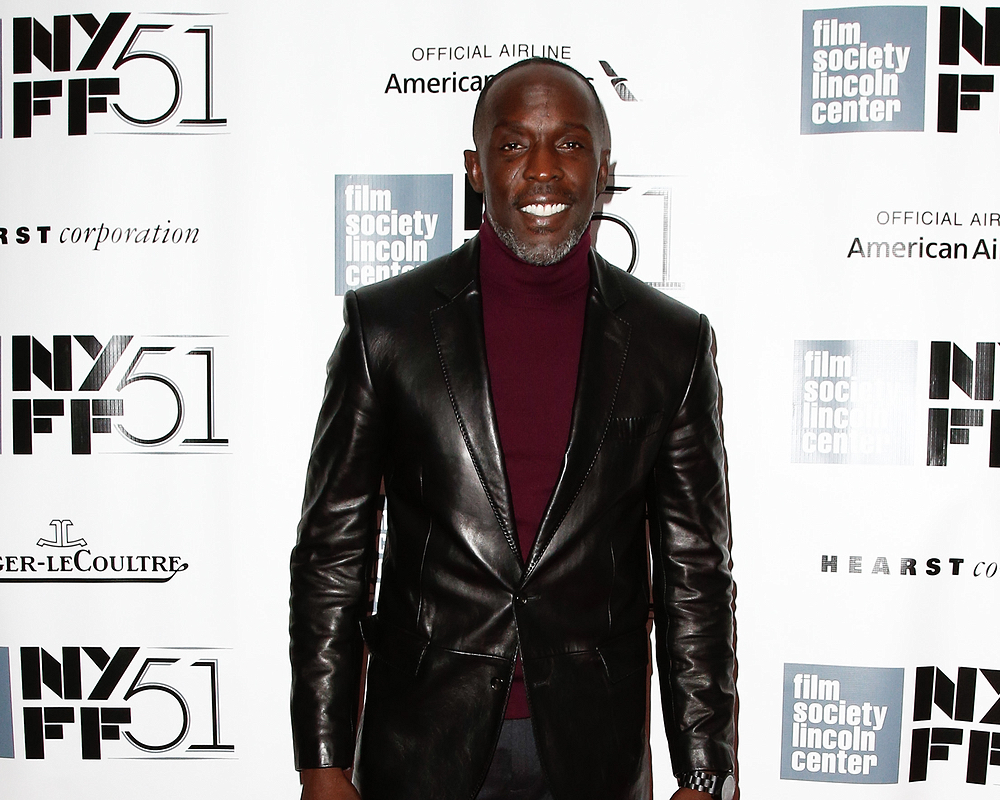
Michael K. Williams, who played the gun-toting, stick-up kid Omar Little on The Wire, has joined the growing chorus of celebrities who have come out to criticize America’s long-running War on Drugs.
Earlier this month, Jay Z declared the drug war an “epic fail” in a short film. Other celebrities like actor Wagner Moura of the Netflix series Narcos, Orange is the New Black author Piper Kerman, and Fat Mike of NOFX have spoken out publicly this month as well.
“We now know, 45 years later, the war on drugs wasn’t meant to make America safer or more productive. It was meant to mute President Richard Nixon’s toughest critics, to criminalize black people and so-called anti-war hippies,” Williams wrote in his CNN op-ed.
“The war on drugs is a war on people—and more specifically, black and brown people, whom it has sought to demonize and silence, criminalizing generations of youth of color and creating severe drug-sentencing laws ultimately to target and incarcerate communities of color.”
Slowly but surely, the tide of public opinion is turning against the drug war. Also this month, an ex-cop and candidate for county sheriff in Iowa, Rick Stewart, told Vocativ that drug war prisoners should get $50,000 for every year spent behind bars.
“The effects of the War on Drugs have been, and continue to be, devastating,” Williams wrote. “The millions of parentless homes, the heartbreaking struggles with addiction, the financial desperation and the overall feeling that systems were built to hurt, not help, are painful consequences of racially motivated policies that continue rippling throughout our communities. This ‘war’ has left an unforgivable blight on black communities across the country. And yet it still rages.”
With law enforcement agencies like the Drug Enforcement Administration continuing to fight a senseless “war,” our resources are being wasted and multiple generations of people of color continue to rot in the penitentiary for non-violent drug offenses.
It’s time for the policies of the drug war to come to an end. It’s time to realize we can’t incarcerate ourselves out of the drug problem, especially when it’s a health issue, not a criminal one.
Williams also addressed his struggles with addiction and his fortune in being able to avoid becoming a part of the system.
“When I’ve struggled with addiction issues, I’ve been able to get the help and treatment I needed. I’ve been fortunate enough to have a network of support that has helped me through tough times and empowered me to pursue my dreams, a career, and success. I realize that no one’s life, least of all mine, would have been safer, better or more productive if I had been jailed for my addiction issues.
“Fortunately for me, the war on people did not swallow me up. I was able to sidestep the trappings of a system designed to make me fail. But this isn’t the case for many young men and women of color.”
The actor continued, “We must demand that policymakers in Washington begin unraveling the policies that have shackled generations of young Americans by supporting criminal justice reforms such as the Sentencing Reform and Corrections Act, and start peeling back layers of policy that have criminalized and demoralized our communities for too long.
“And we must demand that presidential candidates make a pledge to voters that in exchange for our votes they will begin undoing the injustices that have left too many behind and blown over, and finally create a level playing field for all Americans—especially Americans of color.”
